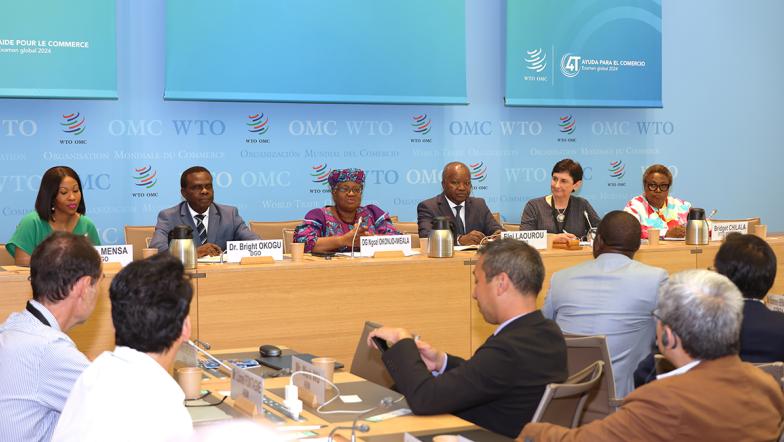Chairs Programme can help trade deliver for people — DG Okonjo-Iweala

Speaking at the WTO Chairs Programme Annual Conference on 25 June, Director-General Ngozi Okonjo-Iweala said the network’s academic research is “helping governments and other stakeholders ensure that trade benefits all sections of society, including women, young people and indigenous populations — and that it benefits the planet.” Members of the Chairs Programme from across the world are taking part in the conference in Geneva to strengthen their collaborative work on maximizing the potential of trade to reduce inequalities in developing economies.
The DG discussed with participants their trade-related projects involving research, curriculum development and policy outreach implemented jointly with the WTO Secretariat. “The Chairs network has a vital role to play in relaying to us the real problems and needs on the ground that should inform our agenda here in Geneva,” DG Okonjo-Iweala said. “It functions like a set of eyes and ears for the WTO, bridging the gap between Geneva and the places you are based.”
The discussions on work undertaken at the WTO included the activities of the Informal Working Group on Micro, Small and Medium-Sized Enterprises related to supporting businesses and the Informal Working Group on Trade and Gender, which aims to mainstream gender into trade conversations. The participation of several chairs in the WTO Gender Research Hub was also highlighted.
DG Okonjo-Iweala also noted the mandate from members at the 13th Ministerial Conference to take work on trade and gender to the next level. “As we work towards the reglobalization of trade and towards putting the WTO on a solid footing for its next thirty years, members will continue benefitting from the innovative thinking and fresh perspectives [the Chairs network] brings to the WTO's legacy and to emerging issues,” she noted. The Programme currently comprises 35 universities. Earlier this year, DG Okonjo-Iweala visited the Chairs in Chile, Peru and Uzbekistan.
Trudi Hartzenberg, Academic Advisory Board Member of the Chairs Programme and Executive Director of the Trade Law Centre in South Africa, said: “The stakes for a multilateral trading system that makes trade work for all have never been higher. Rebuilding trust in the power of collective action to eradicate poverty, inequality and exclusion requires that we take bold and innovative steps supported by evidence-based research and policies. It also requires that we make sure that trade opportunities are accessible for marginalized communities, across and within countries.”
In the coming months, the Chairs network will be working on projects related to digital trade, environmental sustainability, export diversification, the WTO Fisheries Subsidies Agreement, food security, and global and regional value chains, among other topics.




